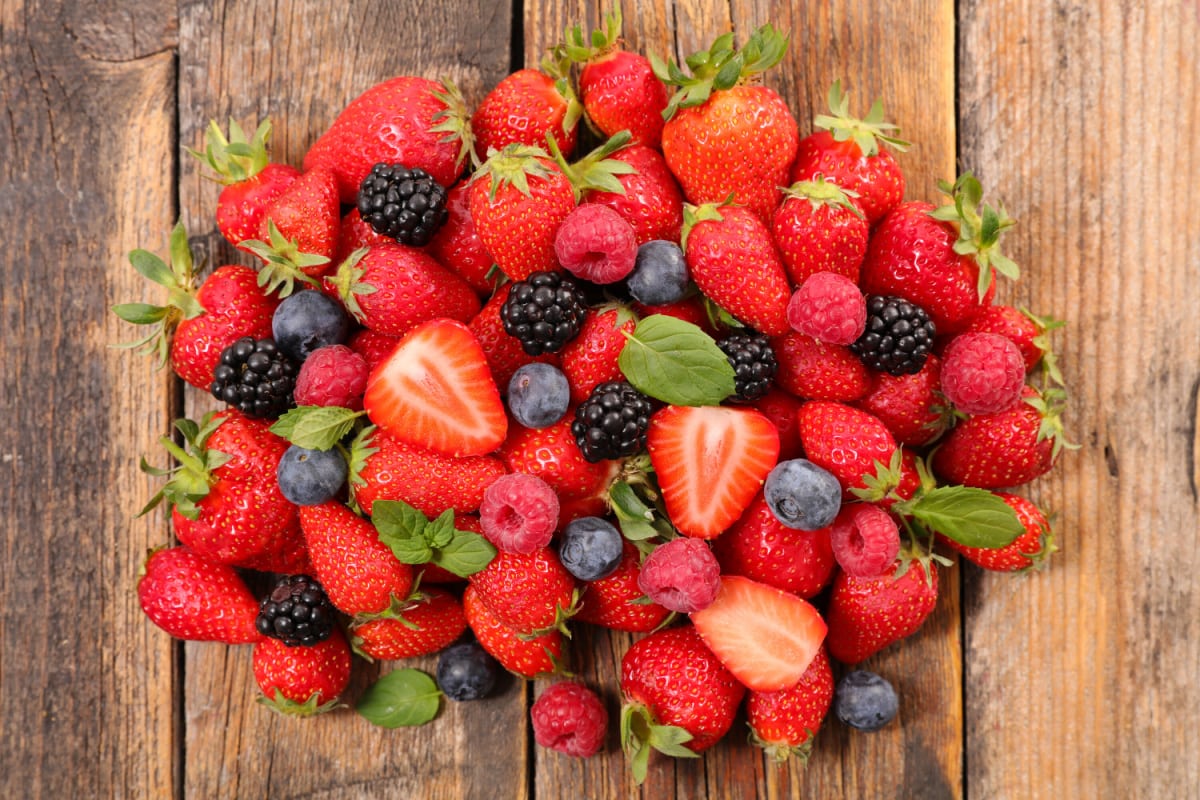Best Fruits for Lowering Cholesterol
Best fruits for lowering cholesterol:
Who doesn’t love fruit? Make it work for you and your dietary needs! Read ahead to know the best fruits for lowering cholesterol.
Low-density lipoprotein, levels in the blood might rise as a result of poor food choices. Alcohol use, fatty food consumption, and a sedentary lifestyle can all contribute to elevated cholesterol levels, which can increase the risk of obesity and heart attack or stroke.
Good cholesterol, and high-density lipoprotein, are necessary for many bodily processes and are not completely negative.
Your liver naturally produces all the cholesterol your body needs. Here are some best fruits for lowering cholesterol:
Berries:
Strawberries include significant amounts of polyphenols, which are plant-based substances that naturally aid in controlling your cardiovascular system. Because strawberries contain a lot of polyphenols, research has connected them to a lower risk of cardiac disease. Raspberries can improve your statistics because they have 8 grams of fiber in just one cup. Consuming enough fiber promotes healthy digestion and lowers LDL levels. According to several research, eating blueberries frequently can lower blood pressure. They help blood vessels circulate more freely, which reduces the progression of atherosclerosis.
Apples:
When it relates to decreasing cholesterol, apples are regarded as one of the healthiest fruits. Apples are full of soluble fiber, which protects the health of our hearts. Also present in apples are polyphenols, which can reduce cholesterol levels. Eating an apple, a day might keep your cardiologist at bay. There is proof that regularly eating apples may lower total cholesterol. That’s because apple skins contain phenolic chemicals, which are antioxidants that support healthy cellular activity and normal blood flow.
There are several reasons why people refer to it as a fruit that stays the doctor away, from skin health to digestion. It turns out that the sweet and scrumptious fruit may also aid in cholesterol management. Together with other components like antioxidant polyphenols, the pectin fiber found in apples lowers levels of bad LDL cholesterol and slows oxidation, which is a risk factor for atherosclerosis, a condition marked by hardened arteries. Additionally, heart-healthy polyphenols shield blood vessels and heart muscles from damage caused by free radicals.
Pineapple:
It is a great resource of vitamins, minerals, and nutrients. Bromelain, a substance found in pineapple, helps to support healthy blood flow and lowers the risk of cardiovascular disease by reducing cholesterol buildup in the arteries. You might have heard that eating pineapple can help you lose weight. Pineapple juice may aid in enhancing fat breakdown and reducing fat production. But that finding needs to be confirmed by more human investigations.
It is a healthy snack option even though it won’t have a big impact on your metabolism because it is very low in calories, high in vital minerals and vitamins, and free of trans and saturated fats. Since pineapple has fewer calories than other sweet foods, having a piece of pineapple for dessert every night rather than a cone of ice cream may help you lose weight. Additionally, pineapple has fiber, that can help regulate the blood sugar levels and encourage you to eat fewer calories because it keeps you full longer.
Papaya:
The fruit’s high fiber content aids in regulating blood pressure as well as levels of “unhealthy” cholesterol. About 14 to 15 grams, or a respectable quantity, of fiber, are included in one large fruit. Additionally, fibers promote easier bowel movements, bulk up the stool, and enable easier digestion. Papayas are a well-liked fruit because of their sweet flavor, brilliant color, and myriad health advantages.
Oranges:
Oranges are not only tasty and beneficial to the immune system, but they also appear to be beneficial to your heart health. Oranges are a tasty fruit with essential elements for heart health that don’t have any added sugars. Persons who drink orange juice significantly lower levels of both total and LDL cholesterol, with men having a 25% lower risk of having low HDL concentrations than non-consumers. Having a glass of 100% orange juice first thing in the morning can be a good way to promote normal cholesterol levels.
Watermelon:
Beginning your summer with watermelon is a delightful idea, and it has cholesterol-lowering properties as well. Famous fruit watermelon is a great complement to a cholesterol-lowering diet. Lycopene, a carotenoid that has been demonstrated to neutralize free radicals and perhaps prevent high cholesterol levels, is a natural component of watermelon. Drinking watermelon juice can be a cool way to get a variety of essential nutrients, such as lycopene, into the diet, especially if you substitute it for beverages that have added sugar.
Banana:
Bananas’ fiber and potassium content can lower blood pressure and cholesterol levels. In particular, bananas are renowned for being a good source of soluble fiber, which promotes a healthy body and immune function. Fiber, antioxidants, potassium, and folate, like vitamin C, are all present in bananas. Everything here promotes heart health.
Conclusion
Exercise can raise the HDL levels, but certain fruits can lower the LDL levels. Add above all fruits to your diet for lowering cholesterol levels. If you know of any other fruit for lowering cholesterol levels kindly let us know.
More articles about fruit:
- Best Fruits for Heart Health
- Best Immunity Boosting Fruits
- Zinc Rich Fruits
- Best Fruits for Diabetics
- Dry Fruit Benefits
- Best Fruits for Backpacking
- Fruits to Eat During Pregnancy
- Best Fruit for Eye Health
If you enjoyed this post about the Best Fruits for Lowering Cholesterol and would love to see more, join me on Youtube, Instagram, Facebook & Twitter!
Get discounted copies of my cookbook here.
Fortunately, because of the ads on our website, readers and subscribers of Healthier Steps are sponsoring many underprivileged families.[-:














Thank you for this post